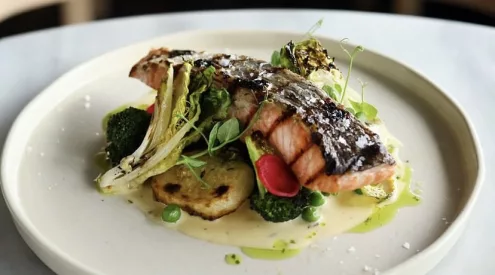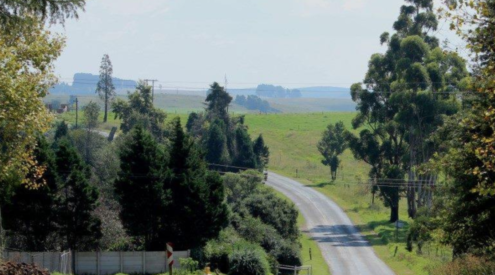Europe meets Asia in Turkey, so their cuisine is always a treat – it relies on good, fresh ingredients and lots of olive oil, and is tasty and healthy – except for the decadent desserts and pastries.
There’s nothing wrong with salad for breakfast – it’s the done thing in many of the Mediterranean countries. Crunchy, crisp cucumbers, deep-red sun-ripened tomatoes and greens that looked as though they’d come straight from the garden adorned the breakfast buffet in the hotels we stayed at during our visit to Istanbul and the Cappadocia region.
Alongside this was loads of fresh and stewed fruit (plump apricots, pineapple, oranges, grapefruit, juicy strawberries, watermelon and ripe red cherries), a choice of the most delicious, natural and flavoured yoghurts, olives – green, stuffed and black varieties – the creamiest cream cheese and an amazing array of salty, feta-like white cheeses (even a stringy one that tasted a bit like vegetarian biltong). In between all this were the usual cereals, jams, toast and eggs with a range of hot dishes. And of course soup: tomato or lentil soup was served at all meals, including breakfast.
To help you kickstart your day – or revive a flagging one – there is Turkish coffee, often served in small, beautiful cups, and Turkish tea. The pastries are wicked: chocolate croissants and pineapple Danishes are just the tip of the iceberg, and creating baklava in various flavours is a national preoccupation.
Meze is a great way to start a meal, whether it’s lunch or dinner. Creamy humus, yoghurt and cucumber, spicy tomato, peppers and roasted eggplant puree were favourites, mopped up with fresh bread (the real stuff with a good crust, not the pre-sliced, packaged spongy stuff of our local supermarkets). Even Turkish Airlines serves delicious meze to passengers; other airlines would do well to note how easy it is to make notoriously dull airline food something to look forward to.
While kofta (spicy meatballs) is a national dish, chicken served with rice and chips has become a staple for Turks, the meat often infused with a smoky flavour from being cooked on a kebab. If you order fish, you’re likely to get a whole small sea bass from the Bosphorus gracing your plate, waiting for you to fillet it with your knife and fork. Unless you’re very adventurous, if you see koç yumutasi on the menu, avoid it – it means ram’s testicles!
Raki is the national spirit and is strong – 45% alcohol content is the norm. It’s a clear spirit, like vodka, but turns a smoky white when water is added. Drunk with ice, its strong, liquorice flavour is an acquired taste. I preferred sour cherry juice, which is also popular and grown locally, and the local beer, Efes, a light pilsener which is very thirst quenching. At markets and outside mosques, vendors wait with piles of oranges and pomegranates to squeeze the juice, using metal presses. A favourite snack is corn on the cob, either roasted or boiled, and served spiked on a stick so you can eat it while strolling along the streets of Istanbul.
Drinks barometer
Bottled water TK1 (about R4,35) for 1,5 litres if bought in a shop; around TK4(R17) for 500 ml from hotel room minibar.
Apple tea TL2 (R8,70)
Sour cherry juice TL6 (R26)
Beer TL7 (R30) for Efes local brand in restaurants; TL13 (R57) in hotel room minibars
Freshly squeezed orange & pomegranate juice TL4 (R17)
When to visit
Spring and early summer are good times to visit Turkey before the heat sets in and fields of poppies still nod in the countryside. Autumn is also great and in winter expect snow to dust the sights.
Getting there
Travelling to Turkey gets a whole lot easier this month, thanks to Turkish Airlines increasing the frequency of their flights to and from South Africa. From the end of October, you can fly any day of the week from Cape Town and Johannesburg directly to Istanbul and back – promo fares are from Euro 442 (about R4 800) ex Jhb return, including airport taxes.
It’s an easy link to Europe, flying almost directly north and with much shorter flying times than airlines going via the Middle East. Turkish Airlines won ‘Best Airline Europe’ and ‘Best Premium Economy Seats’ at the Skytrax World Airline Awards for 2011. Visit their website for details, www.turkishairlines.com
Try this easy meze recipe, courtesy of Turkish Airlines’ Skylife magazine:
Pine nut tarator sauce with red pepper
Ingredients
5 red peppers, roasted and skinned
50g pine nuts, browned
1/3 cup fine bread crumbs
1 clove of garlic
¼ cup olive oil
2 stalks of fresh basil
salt and black pepper
Puree the roasted and skinned red peppers in a blender together with other ingredients. Drizzle with olive oil, garnish with pine nuts and a few sprigs of flat-leaf parsley and serve.

















